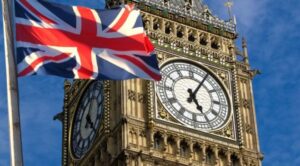 It seems that US state governments are to face hard times, as long as the cashflow of local lotteries is concerned. Yesterday, the Pew Charitable Trusts published some data, according to which that half of the 44 states where lotteries are legal saw a decline of their lottery revenues in the period between 2014 and 2015.
It seems that US state governments are to face hard times, as long as the cashflow of local lotteries is concerned. Yesterday, the Pew Charitable Trusts published some data, according to which that half of the 44 states where lotteries are legal saw a decline of their lottery revenues in the period between 2014 and 2015.
The fact that a large number of US state have reported flat or declining lottery sales combined with their reluctance to increase local taxes in order to compensate for the deficit, more and more lottery operators face difficulties to keep players interested.
As mentioned above, a total of 22 of the 44 states where lotteries are authorised, a revenue decline was registered between 2014 and 2015. Almost all of these 22 states revealed they faced lottery revenue decrease from 2013 to 2014, too. According to data reported by the Pew Charitable Trusts, a decline of the number of players who choose to play the lottery has also contributed to the revenue decline, not to mention the increased competition from other forms of gambling, and most importantly, from casino gambling.
There has been a trend of declining lottery revenues that has been steadily going on for almost twenty years now. Back in 1999 a Gallup poll reported that 57% of the people who participated in the study had bought a lottery ticket over the past 12 months. In comparison, this percentage dropped to 49% in 2016. Even more troublesome is the fact that the number of states which legally permitted lotteries in 1999 was smaller than their number in 2016.
The state of West Virginia announced that its lotteries revenue declined by 2.6% in 2016, while the lotteries revenue in Rhode Island dropped by 3.2%. In 2015, the lotteries revenue in Missouri dropped by 3.3%. As revealed by states’ officials, many other states across the US are facing similar declines in their revenue generated by local lotteries.
David Brunori, a public policy professor at George Washington University, has revealed that the average 2015 revenue in the 44 US states which allow lotteries was approximately $21.4 billion. This result, however, is not brilliant, especially when compared to the amount of $2.2 trillion raised by the states from all gambling operations back in 2015.
And still, not all states lottery revenues are suffering from a decline. For example, the Kentucky Lottery announced that its results over the fiscal 2016/2017 were its best since its initial launch back in 1989. It revealed that its ticket sales over the 2016/2017 fiscal year surpassed the $1-billion milestone for the first time ever. The Lottery in the state of Kansas also praised its sales in the fiscal 2017, explaining they were its second-best after the ones registered in the previous fiscal year.
- Author


